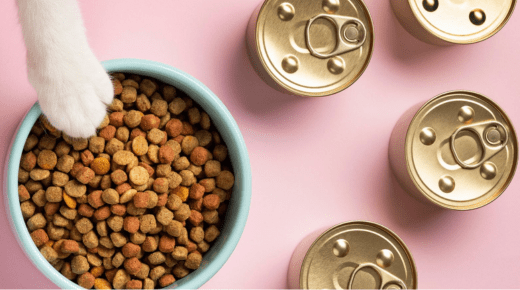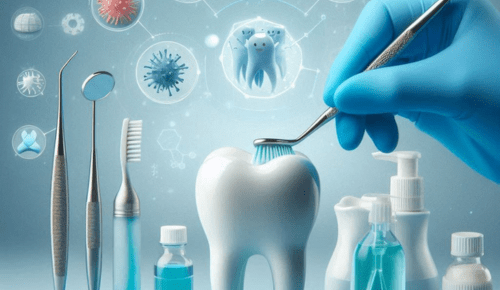1. Understanding Kidney Disease in Cats
Kidney disease is a common health concern in cats, particularly as they age. It can affect their overall well-being and nutritional needs. Choosing the right non-prescription food is crucial for managing the condition and supporting kidney health.
2. Importance of Nutrition in Managing Kidney Disease
Nutrition plays a vital role in managing kidney disease in cats. A specialized diet can help alleviate symptoms, slow disease progression, and improve quality of life. Non-prescription food options provide accessible and affordable solutions for cat owners.
3. Consultation with a Veterinarian
Before selecting non-prescription food for a cat with kidney disease, consult with a veterinarian. They can offer guidance on dietary requirements, recommend suitable brands, and monitor your cat’s health to ensure the diet meets their specific needs.
4. Understanding Dietary Restrictions
Cats with kidney disease may have specific dietary restrictions, such as reduced protein, phosphorus, and sodium intake. Non-prescription food formulas are available with tailored nutrient profiles to support kidney function without compromising on taste.
5. Non-Prescription Food vs. Prescription Diets
Non-prescription food offers a convenient alternative to prescription diets for managing kidney disease in cats. While prescription diets may be recommended in severe cases, non-prescription options are often sufficient for early to moderate stages of the disease.
6. Basic Components of Non-Prescription Food
Non-prescription food for cats with kidney disease typically includes high-quality proteins, limited phosphorus, controlled sodium levels, and added supplements like omega-3 fatty acids and antioxidants. These ingredients support kidney health and overall well-being.
7. High-Quality Protein Sources
Non-prescription cat food should contain high-quality protein sources that are easily digestible and low in phosphorus. Options like chicken, turkey, and fish provide essential amino acids without putting excess strain on the kidneys.
8. Phosphorus Control
Phosphorus restriction is essential for managing kidney disease in cats. Non-prescription food for kidney disease often includes limited phosphorus levels to reduce strain on the kidneys and minimize disease progression.
9. Importance of Hydration
Hydration is critical for cats with kidney disease to support kidney function and prevent dehydration. Wet or canned non-prescription cat food options provide moisture-rich meals that encourage adequate hydration.
10. Monitoring Sodium Intake
Sodium restriction helps manage blood pressure and fluid balance in cats with kidney disease. Non-prescription cat food formulas typically include controlled sodium levels to support heart and kidney health.
11. Omega-3 Fatty Acids
Omega-3 fatty acids, found in fish oil or flaxseed oil, offer anti-inflammatory properties and support kidney function in cats with kidney disease. Non-prescription cat food may contain added omega-3 supplements to promote overall health.
12. Limited Phosphorus
Non-prescription cat food for kidney disease often includes limited phosphorus levels to reduce strain on the kidneys and slow disease progression. Look for formulas with phosphorus binders or alternative protein sources to achieve this balance.
13. Controlled Sodium Levels
Sodium control is essential for managing blood pressure and fluid balance in cats with kidney disease. Non-prescription cat food options prioritize controlled sodium levels to support heart and kidney health without sacrificing taste.
14. Additional Supplements
Non-prescription cat food may contain additional supplements like antioxidants, B vitamins, and potassium to support overall health and compensate for nutrient losses associated with kidney disease.
15. Avoiding Harmful Ingredients
Non-prescription cat food should avoid harmful ingredients like artificial additives, fillers, and excessive carbohydrates. Opt for natural, whole-food ingredients that provide essential nutrients without unnecessary additives.
16. Ensuring Palatability
Palatability is crucial for ensuring that cats with kidney disease eat enough to meet their nutritional needs. Non-prescription cat food should be appealing in taste and texture to encourage regular consumption.
17. Transitioning to Non-Prescription Food
Transition your cat to non-prescription food gradually to avoid digestive upset. Mix small amounts of the new food with their current diet and gradually increase the proportion over several days to weeks.
18. Monitoring Your Cat’s Health
Regularly monitor your cat’s health and well-being when feeding non-prescription food for kidney disease. Watch for changes in appetite, energy levels, and urinary habits, and consult with your veterinarian if you have any concerns.
19. Adjusting the Diet as Needed
Be prepared to adjust your cat’s diet based on their response and health status. Your veterinarian may recommend modifications to the diet or additional supplementation to better support kidney function.
20. Providing Adequate Veterinary Care
In addition to non-prescription food, ensure your cat receives regular veterinary care for kidney disease management. Monitoring bloodwork, urine tests, and overall health is essential for tracking disease progression and adjusting treatment as needed.
21. Considering Individual Preferences and Needs
Tailor non-prescription food options to your cat’s individual preferences and needs. Some cats may have specific dietary sensitivities or allergies, so be mindful of ingredients and adjust as necessary.
22. Seeking Support and Resources
Seek support and resources from reputable sources when selecting non-prescription food for kidney disease. Veterinary nutritionists, online forums, and pet nutrition guides can provide valuable guidance and advice.
23. Storage and Food Safety
Practice proper storage and food safety when feeding non-prescription cat food. Store leftovers in airtight containers in the refrigerator and wash feeding bowls regularly to prevent contamination.
24. Budget Considerations
Non-prescription cat food options are often more affordable than prescription diets, making them a practical choice for managing kidney disease in cats without compromising on quality or nutritional value.
25. Conclusion: Nourishing Your Cat with Non-Prescription Food
Non-prescription food for cats with kidney disease offers a nutritious and accessible option for supporting your cat’s health and well-being. With careful selection, monitoring, and veterinary guidance, you can provide a diet that supports kidney function and enhances your cat’s quality of life.




